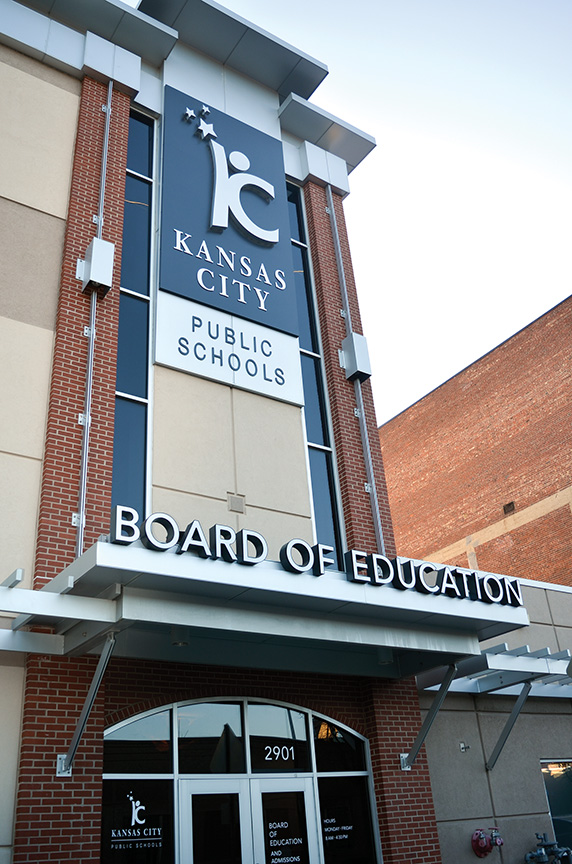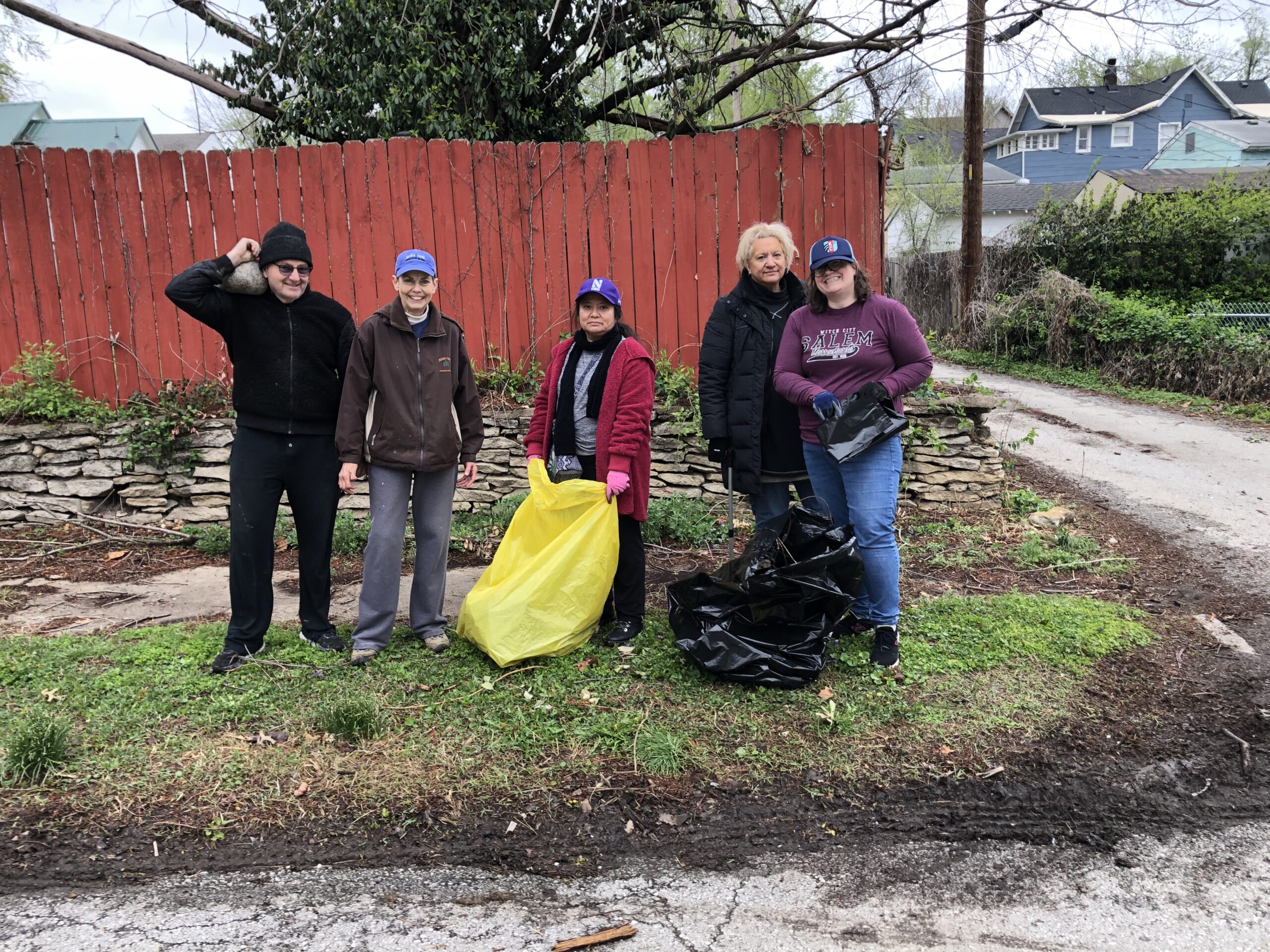
Elizabeth Orosco
Northeast News
To meet the growing need of addressing childhood trauma in the classroom, Kansas City Public Schools (KCPS) received a $2.59 million grant to provide trauma-specific support and resources to students.
The grant, provided through the federal Victims of Crime Act (VOCA), is the largest grant the district has received under the leadership of KCPS Superintendent Dr. Mark Bedell.
The funds will be used to expand the Trauma-Informed School System Model by adding support staff, training teachers and leaders on trauma support, and taking a holistic approach to student’s academic success.
Dr. Lateshia Woodley, executive director of Student Support Services for Kansas City Public Schools, said this will help put the resources in the hands of kids who need them most.
“The VOCA grant is designed to assist us with targeting the needs of students that have been exposed to trauma,” Woodley explained. “So, we’re able to streamline resources to ensure that they get to the students that are most in need of those services.”
To understand why this is monumental for the district, it’s important to know how trauma affects students, especially at such a young age.
In a 2019 journal article, “The Importance of Trauma-Informed Schools for Maltreated Children,” Alexandra Paiva gives a brief explanation of the neurological development of children and what happens when that development is disrupted by trauma.
Exposed to various forms of harm, such as physical abuse, sexual abuse, neglect, emotional harm, or family violence, the brain may experience “instances of insufficient sensory exposure,” or in other words, lack of nurture.
Combining early-age stressors and an absence of healthy parent-child relationships, the result is significant changes in brain development, which lead to educational difficulties.
Deficits in memory, language, concentration, regulation, behavior, perception and cognition can occur as a result of a child experiencing trauma or maltreatment.
A parent or guardian exposing a child to trauma not only affects the development of the child’s brain, but also dramatically inhibits healthy social and emotional skills.
Abuse, neglect and violence often result in fear, worry, insecurity and disorganized attachment.
Many children internalize these feelings resulting in anxiety or depression, while others externalize through aggression or acting out.
How does this translate into the classroom?
Maltreatment and experiencing trauma influence and disrupt a child’s development processes such as knowledge retention, comprehension, executive functioning, and analysis, all which are imperative to academic performance.
These students are at risk for higher grade repeats, poor performance on tests, lower grade point average, lower reading scores, speech and language impairments, and lower IQ scores.
Attendance numbers are also heavily affected as a result of trauma.
On this recent APR score, KCPS received zero out of ten possible points for attendance.
When asked what to do about this, Dr. Bedell didn’t hesitate in his response.
“I don’t know. I’ve never experienced attendance like this anywhere I’ve worked. I don’t have the magic potion. I”m trying to fight just like everybody else,” he said.
Maltreated children struggle with attending school for various reasons, including but not limited to, lack of parental assistance, staying up late at night after experiencing trauma or violence, feeling embarrassed to attend class or staying home to protect vulnerable family members from abuse.
Another aspect of attendance issues is mobility, which refers to students changing schools during a school year.
This, also, is caused by many factors, but one main discussion revolving around mobility is evictions. As families are evicted across the city, the kids are also displaced, homeless or moved to different schools.
According to the Kansas City Eviction Project, there are roughly 9,000 evictions filed each year in Jackson County.
The study focuses in on KCPS students and found that between 2008-2012, 300-500 students in KCPS faced an eviction at their stated address.
According to the Kansas City Public Education System Analysis, the statewide mobility rate in 2018 was 23.2. KCPS mobility rate the same year was 40.9.
Breaking that number down further, KCPS neighborhood schools had significantly higher amounts of mobility rates than signature schools.
In 2018, the mobility rate for neighborhood schools was 47.4 compared to the 15.3 rate of signature schools.
All the pieces come together to form the entire picture. Students across the KCPS district face many outside challenges that affect their education.
“Think about a child who doesn’t have a place to lay their head at night, and they are coming into the classroom and we’re expecting to teach them academics. Those pieces play a role in student behavior. Their brains are on this fight or flight mentality,” said Woodley. “In order for you to teach a child, you have to know them.”
Dr. Bedell, in a recent interview with the Northeast News, discussed the challenges of an urban school district, compared to suburban districts.
“We all have very difficult community problems that we have to overcome. Evictions, mobility, homelessness, things that you might not have to deal with out in a Blue Springs or Lee’s Summit. A teacher working at a central middle school is a significantly different assignment than a teacher perhaps working at a suburban school where, you don’t have those community factors that kids have to encounter. They can come to school and just be a kid. These teachers have to be a lot more than just a teacher,” he said.
So the news of the VOCA grant was emotional for Dr. Woodley.
“When we received this grant, I did a cartwheel and split!” Dr. Woodley said.
The grant will allow the district to train every KCPS teacher in a number of trauma-informed interventions including conflict resolution, de-escalation and meditation.
The staff will also be taught how to recognize and treat secondary trauma, the emotional duress that results from firshand trauma, they experience during their work.
Developing a trauma-sensitive lens requires teachers and staff to challenge their own labeling of children who are exhibiting trauma-related behaviors, understanding that more often than not, these behaviors are ingrained reactions instead of chosen acts of defiance.
Essentially, it is asking a child what has happened to them instead of what is wrong with them.
KCPS has been able to double the number of school-based trauma-sensitive clinicians, professionals who serve as coaches for students, family members, teachers, support staff and school administrators.
Students will also be equipped with tools to help them deal with the impact of trauma in their own lives.
“We’re looking to help our students understand their own trauma and begin to unpack coping strategies, as well as conflict resolution skills and how to communicate effectively with adults and their peers,” said Woodley.
The KCPS Mentorship Initiative will also benefit from the VOCA grant, as a portion of the money will be used to add a mentoring data analyst and a mentoring coordinator.
According to KCPS Mentoring Services Director Sherenna Clinton, mentors are often the first adults connected with a school who learn about cases where students have experienced trauma.
“When things happen to our students, we want to make sure our mentors have the training and resources to respond appropriately,” Clinton said. “They really are the first point-of-contact in many cases.”
Manny Abarca, treasurer of the Kansas City School Board and representative for Sub-district 3, said the grant will be highly beneficial for KCPS students.
“This funding allows us to expand our student support services, providing students with even more programs that allow them to focus in the classroom, while addressing the many traumas they have experienced outside of it,” he said.
Ultimately, the grant will allow schools to come alongside students encountering trauma, get a deeper look into the context of the student’s life and provide the support they need.
“We’re looking at a holistic approach, with everyone involved, from the community, to the students, to the staff – everyone being trained in trauma-informed practices,” Dr. Woodley said.















